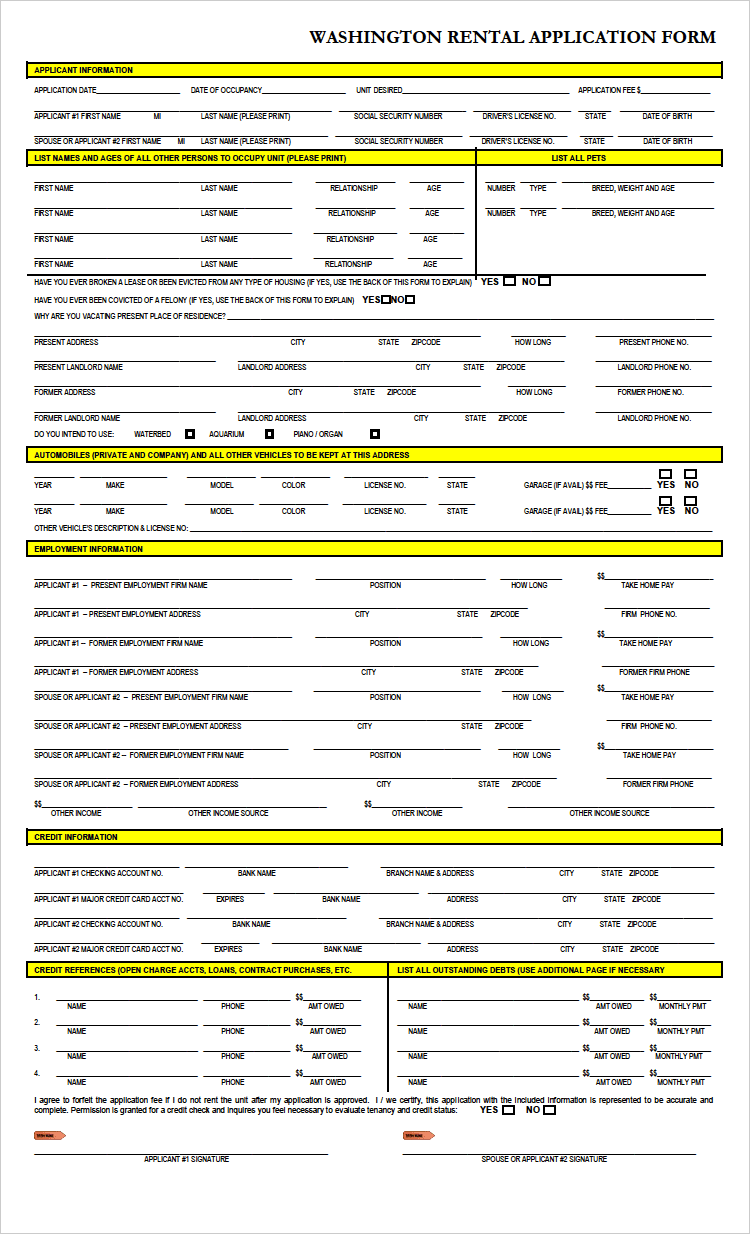Washington Rental Application
The Washington Rental Application is an official screening tool used for capturing a wide variety of details of a person looking to enter into a residential lease. With the information gained from the form, the landlord or property manager can compare the answers to a list of set determinants such as a minimum credit score and at least two (2) strong references, to name a couple. The form, which is broken into eight (8) convenient sections, covers every possible aspect of the applicant, of which includes:
- Personal information of the applicant
- Additional person(s) that will be sharing the rental
- Pets (if any)
- Motor vehicles that will be kept on the property
- Employment information
- Credit info
- Credit references
- A list of all debts (if any)
State Laws
Maximum Application Fee (§ 59.18.257): Fees charged to applicant tenants can only amount to the total costs of running the screening(s) as well as the time spent making calls to landlords/property managers, past employers, and financial institutions such as banks. In order for the landlord to keep the charged application fee, landlords must also provide the following information to the applicant:
- The landlord’s criteria for accepting/denying an application.
- The information that will be collected in the form.
- Whether or not they will accept a reusable screening report (provided by the tenant). If they do allow tenants to submit their own report, they cannot charge the tenant for the cost of running their own screening tests.
- The landlord needs to inform the applicant that they can access both the name and address of the agency used for running the credit report (if one used), and has the right to dispute the results of the report.
In the event that the applicant is denied, the landlord is required to provide an adverse action notice to the applicant, stating the reasons why the tenant cannot enter into a lease. Download: Adverse Action Report (.pdf)
Security Deposits: No statutory limits. After moving out, landlords have fourteen (14) days to return the deposit (subtracting any costs) to the tenant.
Guide to Washington Laws: Landlord/Tenant Rights Pamphlet
